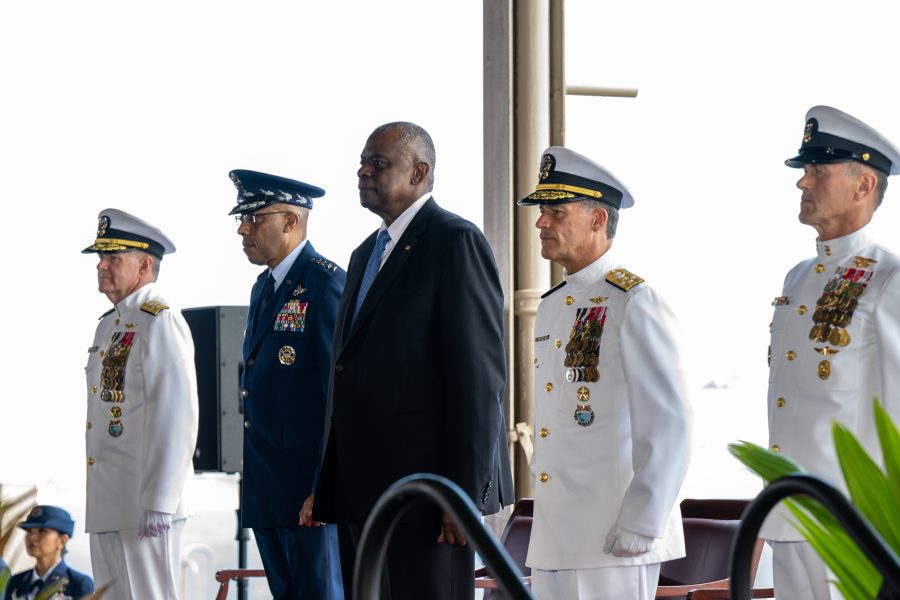Navy Adm. Samuel J. Paparo Jr. assumed leadership of U.S. Indo-Pacific Command on May 3, succeeding Adm. John Aquilino and pledging strong responses to threats in the region.
“We must be ready to answer the People’s Republic of China’s increasingly intrusive and expansionist claims in the Indo-Pacific region,” Paparo said during a change of command ceremony in Hawaii. “As we look to the future, the joint force will meet this great responsibility with strength, resolve and confidence.”
Paparo, formerly at the helm of the U.S. Pacific Fleet, has long maintained a firm stance against China’s actions in the region, asserting that it is pursuing “an undaunted effort to extend its aggression as a revanchist, revisionist, and expansionist state,” seeking to reset borders with military power.
The change of command arrives amid simmering tensions in the South China Sea, fueled by Beijing’s increasingly hostile actions against U.S. allies’ maritime traffic in the waters and a latest surge in “unprofessional” intercepts towards U.S. aircraft. Compounding the situation are China’s recent military restructuring and upping its defense budget.
“Our world is a complex problem, set in the troubling actions of the People’s Republic of China and its rapid buildup of forces,” said Paparo. “INDOPACOM, together with our partners, is positioned to deny and defend against attempts to break the peace accorded by the international rules based order. With this enduring test, the United States and our allies and our partners will uphold the stable and open international system that’s been a pillar of global security and wellbeing for nearly a century.”
To counter China, INDOPACOM fortified its posture in the region under Aquilino’s tenure. The command bolstered Guam’s defense system and expanded defense ties with key regional nations such as Australia, the U.K., the Philippines, Singapore, South Korea, and Japan through multi-domain exercises. Secretary of Defense Lloyd J. Austin III noted these years have been a “decisive time for our defense strategy,” cautioning that China is the “only country with both the will and increasing capacity to dominate the Indo-Pacific.”
“Unfortunately, the People’s Republic of China continues to engage in increasingly coercive behavior,” said Austin. “And we can see that across the Taiwan Strait in the East and South China Seas among the Pacific Island countries along the line of actual control with India and more.”
Paparo also echoed Austin’s concerns about Russia, North Korea, and violent extremist organizations that also threaten regional security. He vowed to work in concert with allies to preserve a “free and open Indo-Pacific.” As Washington strengthens its defense bonds with regional allies, observers have cautioned against the burgeoning military and economic partnership between China, Russia, and North Korea.
“The team is uniquely ready to shape the current strategic environment to our nation and our allies and partners advantage and we must act now with a sense of urgency we set out on this path,” said Paparo. “We will safeguard the international order characterized by transparency, cooperation, fair competition, and the rule of law will bring all to bear in all domains, harnessing and integrating capabilities supporting partnerships to maintain peace and security while safeguarding sovereign rights.”
